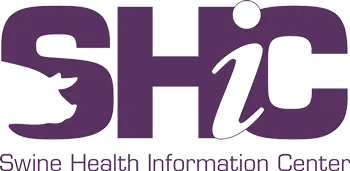Biosecurity intelligence for outbreak response and business continuity
RABapp™ provides livestock industry and animal health officials with rapid access to the information they need to respond to animal health emergencies.
SCROLL TO DISCOVER MORE
125
companies in swine, poultry, and cattle rely on RABapp™ daily
36
states benefit from RABapp™'s biosecurity solutions
7341
farms with biosecurity plans
9957+ swine farms
414+ poultry farms
202+cattle farms
Protect, optimize, and lead with RABapp™
Stay compliant, stay ahead
Discover how RABapp™ helps you achieve biosecurity compliance quickly and reduce the risk of disease before it spreads.
Predict, prevent, and lead
Take advantage of the latest veterinary epidemiology research to identify disease risks before they happen. RABapp™ integrates state-of-the-art transmission models, developed by leading experts, to transform your farm data into clear, actionable insights, empowering faster, smarter biosecurity decisions.
Turn biosecurity risk into competitive advantage
Use RABapp™ to identify infected farms, optimize animal and vehicle routes, and make faster, data-driven decisions. Do not allow outdated routines put your farms at risk.
What our customers are saying...
Discover how RABapp™ is transforming biosecurity management
The RABapp™ team has been excellent to work with as we have worked towards improving biosecurity and traceability for our system. RABapp™ makes SPS plans, state approval, movement reporting, and US SHIP enrollment as easy as clicking a button. Reporting into RABapp™ requires minimal additional workload on our end, we are getting increased value out of what we were already doing. The system is very intuitive and easy to use. The RABapp™ team has also been continuously improving and adding features and capabilities. I would highly recommend working with RABapp™.
Dr. Sam Copeland
Veterinarian
Prestage Farms
In Oklahoma, we encourage all swine producers to develop Secure Pork Supply plans specific to their operation regardless of the size or number of hogs they own. To assist producers in developing these enhanced biosecurity plans, Oklahoma utilizes RABapp™, which standardizes the plan to be consistent with participating state SPS planning efforts.
Alicia Gorczyca-Southerland DVM
Assistant State Veterinarian
Oklahoma Department of Agriculture, Food and Forestry
RABapp™ has helped to gather plans. It has been a positive change…The accessibility of the plans is helpful as well as the ease of having producers able to update plans easily. I recommend RABapp™ to pork and cattle producers now. My overall experience has been positive and…RABapp™ has met my expectations.
David Weinand
Secure Food Supply Coordinator
Minnesota Department of Agriculture
I have really appreciated using RABapp™. It has streamlined the entire SPS process, including inputting the plans, drawing the maps, and sending them to the states for review and approval. RABapp™ has also facilitated US SHIP enrollment as well. I would recommend RABapp™ to all pork producers as a way to simplify these processes. I appreciate the support from the team at RABapp™. When I have questions or concerns, they are very helpful and quick to respond.
Dick Cardon
Biosecurity Manager
Smithfield Foods
The RABapp™ team has been excellent to work with as we have worked towards improving biosecurity and traceability for our system. RABapp™ makes SPS plans, state approval, movement reporting, and US SHIP enrollment as easy as clicking a button. Reporting into RABapp™ requires minimal additional workload on our end, we are getting increased value out of what we were already doing. The system is very intuitive and easy to use. The RABapp™ team has also been continuously improving and adding features and capabilities. I would highly recommend working with RABapp™.
Dr. Sam Copeland
Veterinarian
Prestage Farms
In Oklahoma, we encourage all swine producers to develop Secure Pork Supply plans specific to their operation regardless of the size or number of hogs they own. To assist producers in developing these enhanced biosecurity plans, Oklahoma utilizes RABapp™, which standardizes the plan to be consistent with participating state SPS planning efforts.
Alicia Gorczyca-Southerland DVM
Assistant State Veterinarian
Oklahoma Department of Agriculture, Food and Forestry
Your journey starts here
Learn how each step works and start using RABapp™ in your business.
Step 01
Contact us
Fill out the contact form, and our team will reach out to you to begin the on-boarding process on the platform.
Step 02
Data import
Our team provides full support to import your premises and animal movement data. Share your records with us, and we'll handle the setup.
Research and Development
Vehicle movements analysis and risk associated with PRRS and PED infection in the U.S. swine farms
Jason A. Galvis, Gustavo Machado
Learn moreModeling the impact of multiple transmission routes of African swine fever in a barn
Aniruddha Deka, Jason A. Galvis, Christian Fleming, Maryam Safari, Chi-An Yeh, Gustavo Machado
Learn moreEarly detection of ASF: comparing sampling strategies in growing pig farms
Jason A. Galvis, Aniruddha Deka, Gustavo Machado
Learn moreAnalyzing the intrastate and interstate swine movement network in the United States
Nicolas C. Cardenas, Arthur Valencio, Felipe Sanchez, Kathleen C. O’Hara, Gustavo Machado
Learn moreVehicle movements analysis and risk associated with PRRS and PED infection in the U.S. swine farms
Jason A. Galvis, Gustavo Machado
Learn moreModeling the impact of multiple transmission routes of African swine fever in a barn
Aniruddha Deka, Jason A. Galvis, Christian Fleming, Maryam Safari, Chi-An Yeh, Gustavo Machado
Learn moreEarly detection of ASF: comparing sampling strategies in growing pig farms
Jason A. Galvis, Aniruddha Deka, Gustavo Machado
Learn moreAnalyzing the intrastate and interstate swine movement network in the United States
Nicolas C. Cardenas, Arthur Valencio, Felipe Sanchez, Kathleen C. O’Hara, Gustavo Machado
Learn moreFAQs
Here you will find answers to the most common questions about our platform.
RABapp™ is designed to support national secure supply plans and biosecurity programs. It currently facilitates the creation of:
- Secure Pork Supply (SPS) plans for swine operations.
- Secure Beef Supply (SBS) plans for cattle operations.
- National Poultry Improvement Plan (NPIP) biosecurity principles for poultry operations.
The Rapid Access Biosecurity app (RABapp™) is a digital tool for the U.S. livestock industry. Developed by experts, it helps producers create standardized on-farm biosecurity plans. Its main purpose is to prevent and control the spread of infectious diseases. The web-based app tracks animal and vehicle movements to enable rapid contact tracing. This data is used to build disease transmission models to predict outbreaks. It provides a centralized, accessible system to enhance national livestock security.
Yes, producers with data in RABapp™ can enroll in US SHIP. RABapp™ has a dedicated tool where producers can enroll all of their farms. More information can be found in the US SHIP program.
Personnel from any entity that owns, operates, or sends or receives swine, cattle, or poultry — from large commercial to independent producers — are encouraged to participate in RABapp™. To take part and use RABapp™, there are a few simple steps to follow, if applicable:
1. Request a National Premises Identification Number (PremID or PIN) from the office of your State Animal Health Official if you do not already have one for your site.
2. Once step 1 has been completed, contact the RABapp™ team via email (machado-lab@ncsu.edu) or phone (919-513-0781). You may also contact the team for guidance and data collection tools if you are unfamiliar with on-farm biosecurity plans and would like additional assistance.
During outbreaks of major infectious disease threats such as African Swine Fever (ASF) and Highly Pathogenic Avian Influenza (HPAI), animal health officials need rapid access to compliant and accurate biosecurity plans. This access helps businesses resume standard operations, including animal transportation between farms. Working closely with swine, poultry, and beef producers, veterinarians, and animal health officials, the RABapp™ team provides a streamlined process for producing, reviewing, and approving plans. This ensures adherence to national requirements, maintains business continuity during emergencies, and enhances overall industry resilience.
Absolutely. Biosecurity is crucial for every farm, regardless of size. An outbreak in the region can impact everyone, and having a plan in place protects your animals and your livelihood. RABapp™ was designed to be simple and scalable for any operation.
RABapp™ walks you through creating a plan step-by-step, removing guesswork and providing the same level of preparedness as larger operations.



